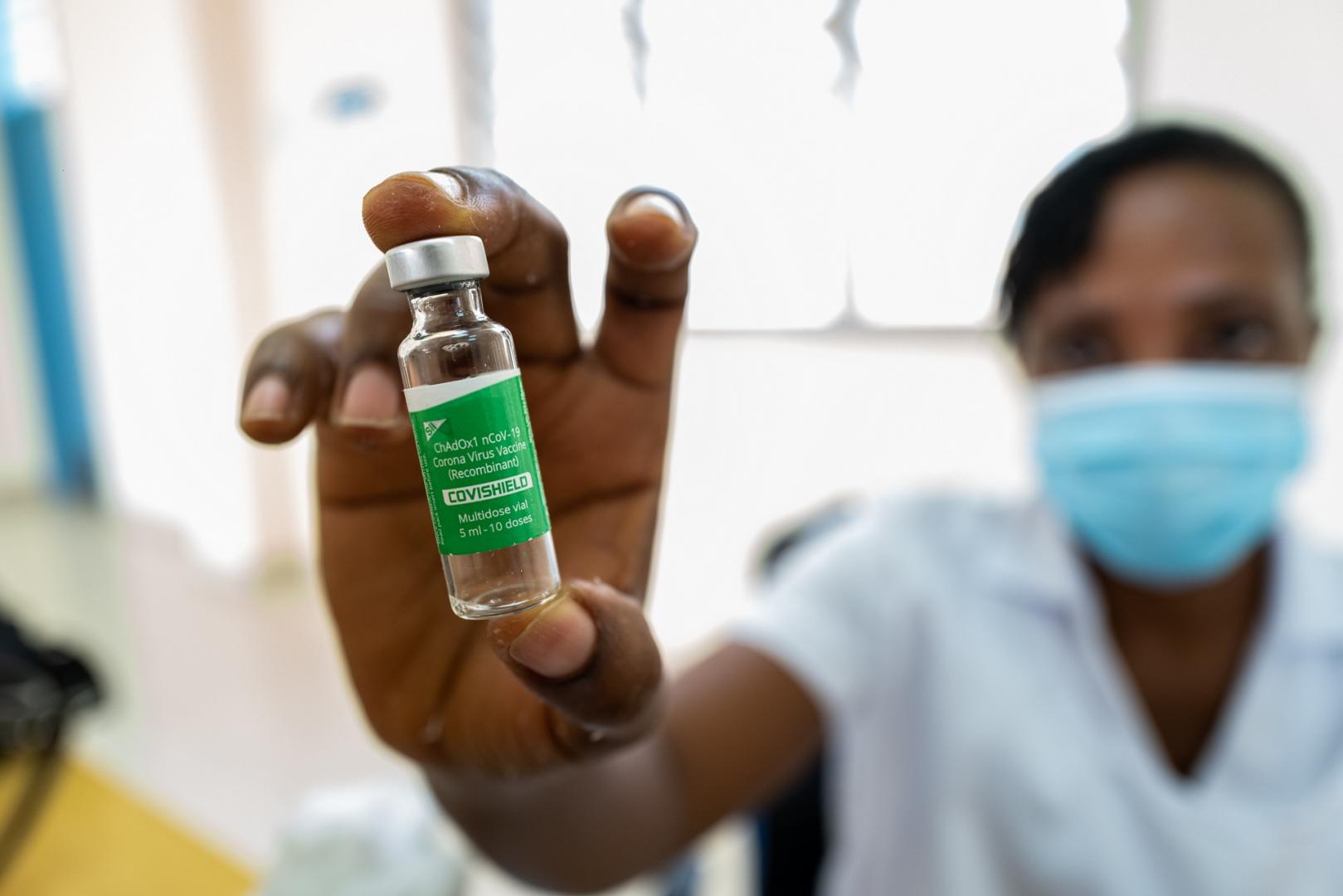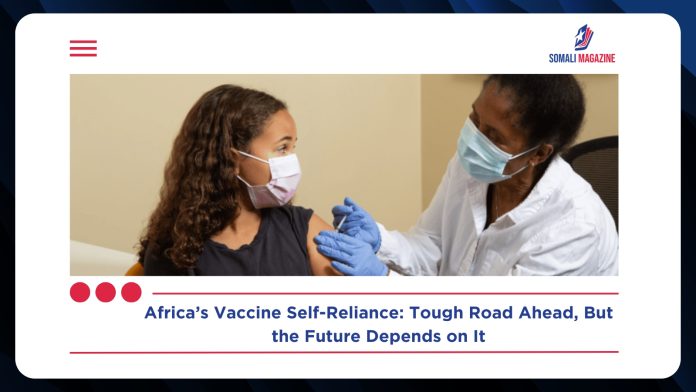Facebook Twitter (X) Instagram Somali Magazine - People's Magazine
Africa’s vaccine self-reliance journey is proving to be a complex but essential mission, as the continent seeks to reduce its dependence on foreign pharmaceutical suppliers and secure its health future. The COVID-19 pandemic exposed the continent’s vulnerability to global supply chain disruptions, with African nations receiving just a fraction of the world’s vaccine supply during the early stages of the crisis.
Despite accounting for nearly 20% of the global population, Africa currently produces less than 1% of the vaccines it consumes. This stark imbalance has prompted urgent calls for investment in local manufacturing, regulatory reform, and regional cooperation to build a resilient pharmaceutical ecosystem.
The African Union has responded by launching initiatives such as the Africa Vaccine Manufacturing Accelerator (AVMA) and the Platform for Harmonized African Health Products Manufacturing (PHAHM), aimed at creating a unified market and attracting investment. The operationalization of the African Medicines Agency (AMA) is another milestone, offering regulatory harmonization and quality assurance to support local production.
However, the road to vaccine sovereignty is riddled with challenges. Limited infrastructure, high production costs, and a shortage of skilled personnel continue to hinder progress. Only a handful of countries—such as South Africa, Egypt, Senegal, and Tunisia—currently host vaccine manufacturing facilities, and most of these are focused on fill-and-finish operations rather than full-scale production.

Financial constraints also pose a significant barrier. Africa spends an estimated $14 billion annually on imported pharmaceuticals, a figure that could be redirected to support domestic manufacturing. Yet, attracting sustained investment requires not only capital but also political will, policy consistency, and regional demand certainty.
The COVID-19 crisis, while devastating, served as a wake-up call. It highlighted the dangers of over-reliance on external suppliers and the inequities of global health systems. As wealthy nations hoarded vaccine doses, African countries were left scrambling for access, delaying immunization campaigns and prolonging public health emergencies.
In response, African leaders have begun to embrace a new vision—one that prioritizes local solutions and regional solidarity. The inclusion of the African Union as a permanent member of the G20 has further empowered the continent to advocate for its health priorities on the global stage.
Experts argue that achieving vaccine self-reliance is not just a health imperative but also an economic opportunity. The continent’s pharmaceutical market is projected to grow from $28 billion in 2020 to $65 billion by 2027, offering immense potential for job creation, innovation, and industrial development.
While the path ahead is steep, the momentum is building. With coordinated action, strategic investment, and regulatory support, Africa can transform its vaccine landscape and ensure that future generations are protected by homegrown solutions.

